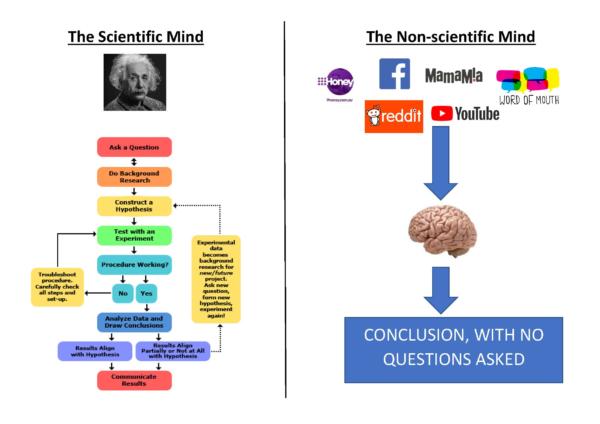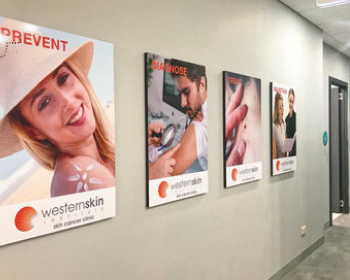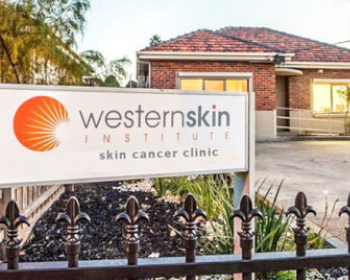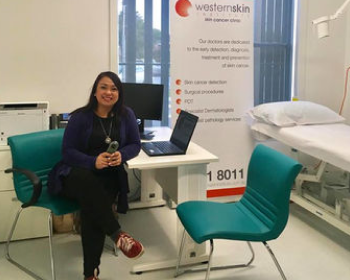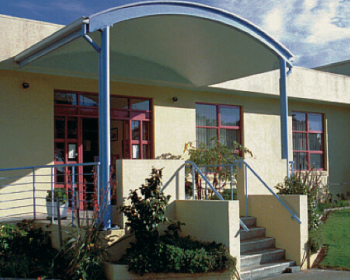Recent publications in non-evidence-based websites has led to negative sentiment about this medication.
https://www.mamamia.com.au/hormonal-adult-acne/
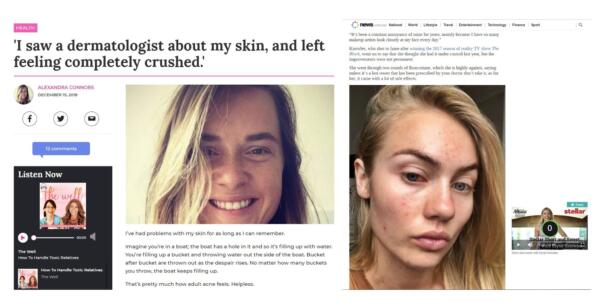
What is Roaccutane, Accutane, and Oratane?
All three names above are brand names for a common medication called isotretinoin. Isotretinoin is a vitamin A derivative (13-cis retinoic acid) which is effective for the treatment of severe recalcitrant acne. The first study to show benefit of this medication was a study published in 1979.1 Since then, multiple studies have confirmed the effectiveness of this medication.
1 Peck GL, Olsen TG et al. Prolonged remissions of cystic and conglobate acne with 13-cis-retinoic acid. N Engl J Med. 1979;300(7):329.
How does isotretinoin work?
Isotretinoin therapy leads to shrinkage of sebaceous (oily) glands and a big reduction in sebum secretion. The decrease in sebum stops the bacteria Cutibacterium (formerly known as Propionibacterium) acnes, which is a key promoter of inflammation in acne vulgaris. Isotretinoin also stops comedones (black heads and white heads) and encourages normal keratinocyte (skin cell) development. Isotretinoin is the only medication that targets all four mechanisms which is why it is so effective. >90% of patients see improvement in their acne although in the first few weeks, the acne may worse before it starts to improve.
What are the side effects of isotretinoin?
The most common side effect is that of dry skin (xerosis) and dry lips/mouth (xerostomia). Nose bleeds can occur if the inside of the nose becomes dry. Sun-sensitivity is common, so appropriate use of sunscreen is important.
Isotretinoin is teratogenic which means that if a woman falls pregnant whilst on isotretinoin, there will be serious birth abnormalities in the baby. Isotretinoin does not affect male fertility or sperm count and there has been no known adverse effects on the pregnancy if a man taking isotretinoin fathers a child.
Other side effects involve increased fat levels in the blood and mild liver inflammation. The risk of this happening is reduced significantly with low dose therapy.
As a summary, isotretinoin is very well tolerated and it is not uncommon that your Dermatologist may have commenced several hundred patients on this medication. The Australasian College of Dermatologists has released a position statement on this medication which helps bust a lot of myths on this medication: https://www.dermcoll.edu.au/wp-content/uploads/ACD-Position-Statement-isotretinoin-June-2018.pdf
What other options are there for treatment if I do not wish to be on isotretinoin?
There are many other options for treatment. The Journal of the American Academy of Dermatology has released a helpful guideline for the management of acne. https://www.jaad.org/article/S0190-9622(15)02614-6/fulltext?fbclid=IwAR0mTIsY9FL3PlH0beu1bEZVvCjLiwV7cqd22dTGj2gJQiDN8V8unukXd-c#sec11.1
- Topical therapy (creams) – Benzyl peroxide or combinations with an antibiotic erythromycin or clindamycin are effective for mild acne. Topical retinoids are also effective either alone or with a topical antibiotic.
- Oral antibiotics – They are indicated for use in moderate to severe inflammatory acne. The evidence supports (in order of effectiveness): doxycycline, minocycline, trimethoprim or trimethoprim/sulfamethoxazole, erythromycin, azithromycin, amoxicillin, and cephalexin.
- Hormonal agents – Estrogen-containing combined oral contraceptives are effective and recommended in the treatment of inflammatory acne in females. Spironolactone is useful in the treatment of acne in select females. Oral corticosteroid therapy can be of temporary benefit in patients who have severe inflammatory acne while starting standard acne treatment.
- Miscellaneous therapies/ physical modalities – There is limited evidence to recommend the use and benefit of pulsed dye laser, glycolic acid peels and salicylic acid peels. Herbal and alternative therapies have been used to treat acne but limited data exist regarding the effectiveness of these agents to recommend their use in acne.
- Diet – see Skin Blog 7 below.
What about some other option not mentioned above?
There are endless options on Google ranging from snake oil to some miracle cream. Your Dermatologist can only recommend an option that is evidence based and is in your best interest. It is against best practice guidelines for your Dermatologist to hide an effective medication from you.
A 2007 study showed that up to 68.9% of Australians engage in some form of complementary and alternative medicine. (J Altern Complement Med. 2007 Jul-Aug;13(6):643-50.)
Alternative therapies are not only costly and ineffective, they may harm the individual who uses them. The annual out of pocket expenditure on complementary medicine is about $4.13 billion Australian dollars. In addition, there is potential for side effects and drug interactions depending on which alternative medicine is being used. Perhaps the most harmful consequence of alternative medicine is the delay to effective therapy. For instance, a newly diagnosed woman with breast cancer has decided to treat it with herbs for 6 months – that delay to treatment could cost her, her life.
